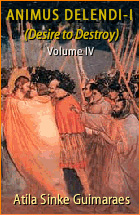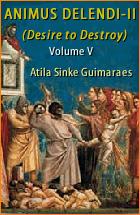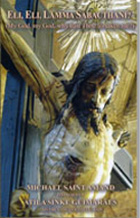What People Are Asking
If the Church Is Indefectible, Why Do You Not Accept the New Mass & the New Saints?
 Volume I |
 Volume II |
 Volume III |
 Volume IV |
 Volume V |
 Volume VI |
 Volume VII |
 Volume VIII |
 Volume IX |
 Volume X |
 Volume XI |
 Special Edition |







Praised be Jesus Christ and His Blessed Mother!
I have been trying to discern the truth about Vatican II, the Novus Ordo Mass, traditionalism, etc. I am a convert to the Catholic faith.
I believe that I have a calling to the priesthood, which has prompted me to look further into the aforementioned matters, in order to better discern the order I ought to join. I find the present situation in the Church very confusing and hence I am writing to you, to try to better understand your position.
I have been talking to other Catholics who hold various stances on these issues and I've been reading articles on your website. The stance that I currently believe to be the most likely is that the traditional Mass is superior to the Novus Ordo, but the NO cannot be said to be inherently bad, because this would seem to contradict the indefectibility of the Church. I believe this was the stance that was held by the late Michael Davies as well.
My understanding from your website is that you believe (along with the SSPX) that the NO is inherently bad and sinful for Catholics to attend. So my question is how does this not contradict the indefectibility of the Church? I have read in your articles that you affirm the Popes have the authority to change the rites of the Church, so then why would the Holy Ghost not protect them from error here?
I believe that before Vatican II, it was a doctrine of the Church that she cannot promulgate a universal disciplinary decree that would be harmful to souls.
If you have the time, could you have a look at this video which explains and argues for this, and respond to it? I will provide some quotes below which are cited in the video. How do you interpret these in conformity with the Recognize & Resist position?
Auctorem Fidei
The prescription of the synod about the order of transacting business in the conferences, in which, after it prefaced "in every article that which pertains to faith and to the essence of religion must be distinuished from that which is proper to discipline," it adds, "in this itself (discipline) there is to be distinguished what is necessary or useful to retain the faithful in spirit, from that which is useless or too burdensome for the liberty of the sons of the new Covenant to endure, but more so, from that which is dangerous or harmful, namely, leading to superstitution and materialism"; in so far as by the generality of the words it includes and submits to a prescribed examination even the discipline established and approved by the Church, as if the Church which is ruled by the Spirit of God could have established discipline which is not only useless and burdensome for Christian liberty to endure, but which is even dangerous and harmful and leading to superstition and materialism,--false, rash, scandalous, dangerous, offensive to pious ears, injurious to the Church and to the Spirit of God by whom it is guided, at least erroneous.
This appears to be saying that the Church cannot establish discipline which is "dangerous and harmful". What are we to make of the Novus Ordo etc. in light of this?
Council of Trent, Canon 7 on the Mass
If anyone says that the ceremonies, vestments, and outward signs, which the Catholic Church uses in the celebration of Masses, are incentives to impiety rather than the services of piety: let him be anathema [cf. n.943 ].
Is the Novus Ordo not one of the "ceremonies, vestments, and outward signs, which the Catholic Church uses in the celebration of Masses"?
Donum Veritatis (which while postconciliar, is part of the Magisterium)
When it comes to the question of interventions in the prudential order, it could happen that some Magisterial documents might not be free from all deficiencies. Bishops and their advisors have not always taken into immediate consideration every aspect or the entire complexity of a question. But it would be contrary to the truth, if, proceeding from some particular cases, one were to conclude that the Church's Magisterium can be habitually mistaken in its prudential judgments, or that it does not enjoy divine assistance in the integral exercise of its mission.
If the Church enjoys Divine Assistance in the exercise of its mission, how can it, through multiple pontificates, promulgate and (seemingly) enforce a rite that is harmful to souls?
Second, I had a question about the canonization of Saints, its probably one you have heard alot - how can the Church commemorate in the Holy Sacrifice of the Mass, and encourage the people to pray to, somebody who is in Hell, and an enemy of God? Which could be the case if canonizations were not infallible (at least at the level of a canonization declaring the person to be in Heaven). I have heard the argument that Canonizations do not fall under the definition of infallibility of Vatican 1, but still I don't see how it could be possible for the Church, the bride of Christ, to celebrate a person who is in Hell cursing him?!
Third, I would like to learn more about Our Lady of Good Success. I learned of her prophecy regarding the collapse of marriage when I was still converting to the faith, and I have watched some videos which talk about her, and it is amazing to see how accurately she prophesied our times. Do you know where I can read the entire message of Our Lady of Good Success?
I must admit I have a fear of making the wrong decision regarding these things (for instance, the religious order to join), which could put me in schism or disobedience to the Church. I do not wish to do what is displeasing to God; I hear of so many contradictory opinions regarding the Mass, the Church, Vatican 2, etc (and that was one of the prophecies of Our Lady of Good Success - that there would be a multiplication of opinions), that I do not know who or what to believe about them. I do not want to rashly make a judgment about these things and end up in schism, or to be offering illicit sacraments, or to be misleading anyone, or anything else offensive to God.
Finally, and most importantly, I would like to request your prayers, that I may discern, and follow, the will of God.
Thank you for your time, and I look forward to your reply.
Yours in Jesus, through Mary,
D.S.
TIA responds:
Dear D.S.,
Thank you for your attention in explaining your position and for asking your questions. We see that you are struggling with a serious problem of conscience.
Your two first questions could be summarized in one simple statement: "Since I believe that the Church is indefectible the Novus Ordo Mass and the new Saints must be legitimate; otherwise her indefectibility would be broken, which is absurd."
In your exposition you take a theoretical approach, independent of the facts. Whatever happens in the realm of the facts does not seem to matter to you since you do not admit that a contradiction may exist between the present and the past doctrines.
However, for you to resolve your problem of conscience, you must have the courage to face the facts and, only then, go on to examine how the theory corresponds to them. This is the only honest path to take. Otherwise you will be fraudulently hiding from the facts in order to maintain your theoretical position.
In order to help you abandon this lack of courage, we invite you to seriously consider the following facts:
- Fr. Antonio Rosmini (1797-1855) was a famous liberal Catholic and a pre-modernist condemned by the Church in 1887. He had 40 of his theses officially condemned by the Church, as you may verify in Denzinger. (DR 1891-1930a) By the way,
this was almost the same number as Luther, who had 41 condemned theses. (cf. DR 741-781)
- On June 3, 2007, Pope Benedict XVI approved the beatification of this same Fr. Rosmini, which took place on November 18, 2007.
- Rosmini also defended the thesis "Ecclesia semper reformanda" – the Church must always be reformed – a thesis that is more radical than that of Luther, which was that the Church needed one reform.
- Now then, since the ascension of John XXIII to the Pontifical Throne, this precise thesis has been considered in the Conciliar Church as prophetic and has been adopted by all progressivists. It was even included in the documents of Vatican II, for example, in this text of
Lumen gentium: "The Church, embracing in its bosom sinners, at the same time holy and always in need of being purified, always follows the path of penance and renewal." (LG 8c)
Now, we ask you: How can you explain the indefectibility of the Church in this case: first, by radically condemning Rosmini, second, by radically supporting him to the point of glorifying him by including him in the most important document of Vatican II and, third, by proclaiming the old heretic a Blessed and presenting him as a model to be followed by all Catholics?Was the Catholic Church indefectible before, when she condemend Rosmini? Yes, we believe she was.
How could she be indefectible after, when she changed her stance, when she now is saying exactly the opposite of that which she said before?
How could she be simultaneously indefectible when she condemned Rosmini as a heretic and when she exalted him as a saint?
Obviously, the answer is that there is no indefectibility in the approval of Rosmini and in his beatification. There is a flagrant contradiction with the past indefectible teaching of the Catholic Church.
How to explain the contradiction? The Catholic Church has been infiltrated by her enemies, who are struggling to destroy her and, for this purpose, are preaching the opposite of what she taught before.
These are the facts, dear D.S. If you have courage to face them, we can continue to discuss other points. But if you run from them to hide in your rabbit hole of theoretical disputes, we can end here our correspondence on this topic.
To answer your third question on Our Our Lady of Good Success, we recommend that you watch the most recent three videos about her that TIA posted on its YouTube channel (here, here and here). All of the published prophecies can be read in the two volume set titled The Admirable Life of Mother Mariana written by Fr. Manuel Pereira in 1799 (here and here).
Cordially,
TIA correspondence desk
______________________
Related Topics of Interest